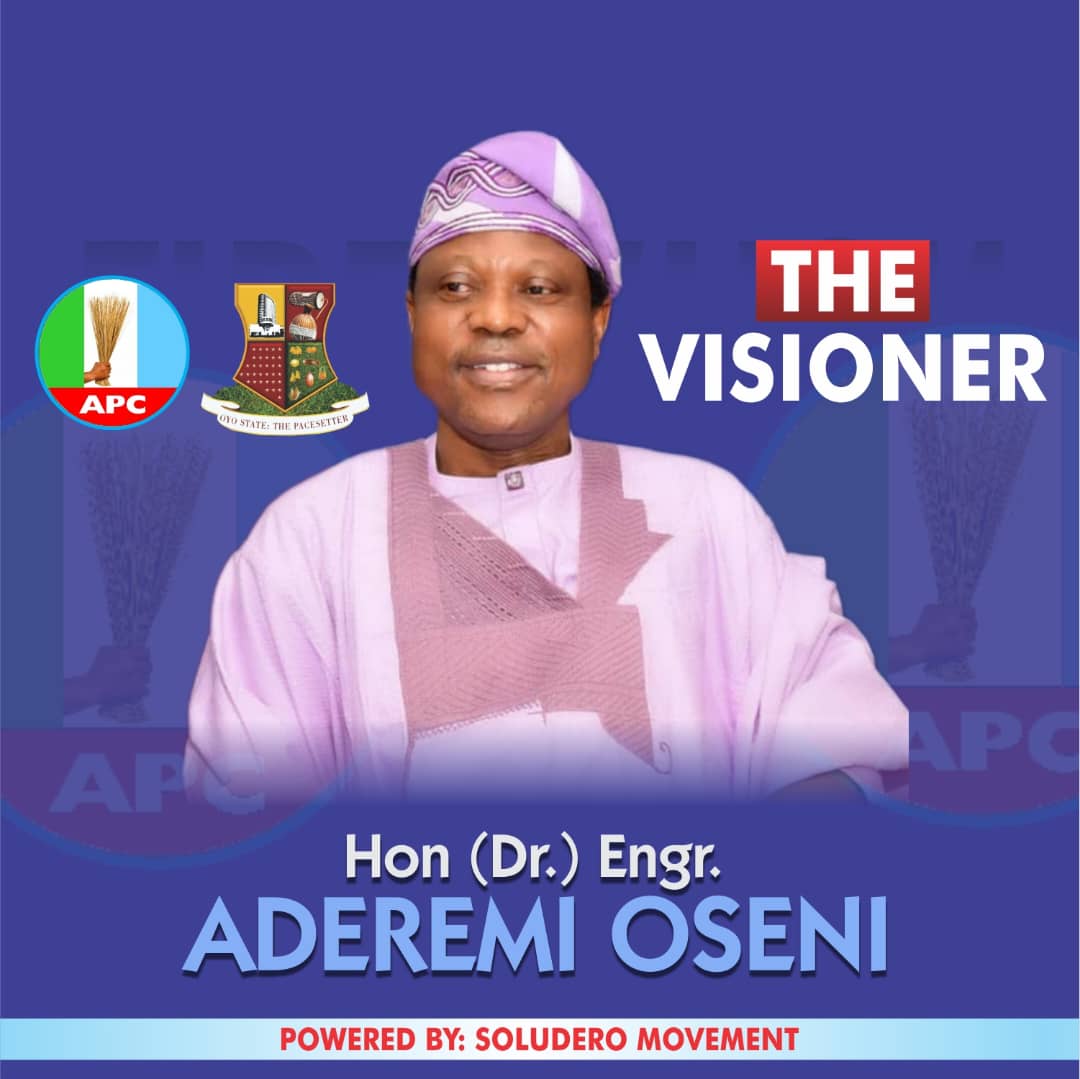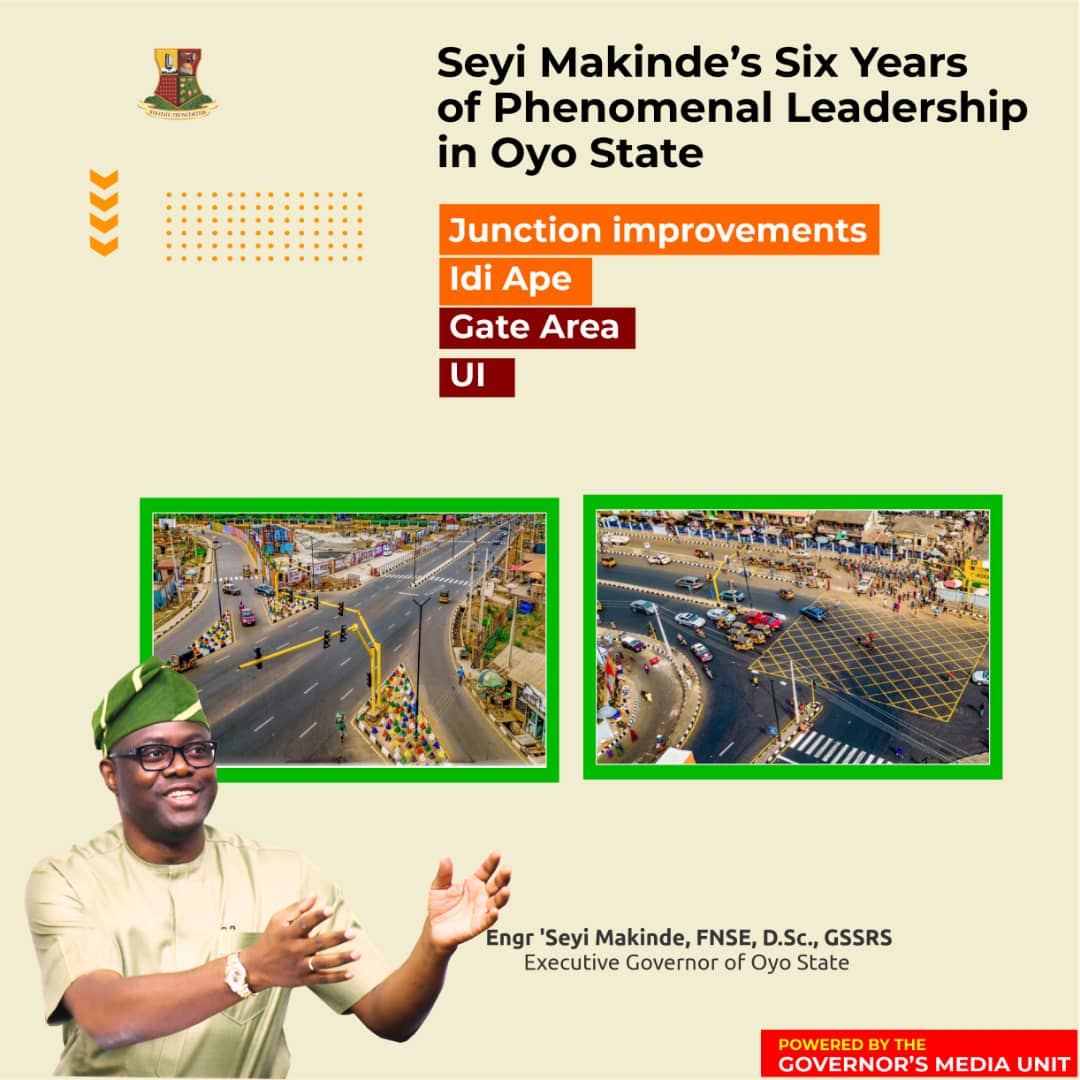•••••‘Our road projects meet international standards’
In this interview by WALE AKINSELURE of Nigeria Tribune, the Commissioner for Public Works and Transport in Oyo State, Professor Dahud Sangodoyin, speaks on the Iwo Road-Osogbo Road project, how the present administration is handling inherited road projects and addresses concerns about quality of infrastructural projects and plans of the state government for feeder roads and bridges.

You traversed quite a number of ministries before you were deployed to the Ministry of Public Works and Transport as the commissioner. How has it been heading the ministry?
So far, so good, but it has been challenging. It has been a journey the Lord has helped me through because of the support I have received from His Excellency, Governor Seyi Makinde and colleagues as well as experts in the field of engineering. It has been fruitful because of the bullish way in which we supervise and monitor our projects. More importantly, we have the aspiration to deliver quality, high-impact infrastructural projects in Oyo State to add to His Excellency’s roadmap for accelerated development. We have been doing that focusing on professionalism, quality control and assurance, value engineering and innovativeness for us to improve on what we met on ground, as well as incorporating feedback from our people.

The government inherited a number of infrastructural projects, how has this administration handled those projects?
We inherited 10 projects, which include the 9.7km Saki Township Road, which we have completed and inaugurated; another one is the 65km Moniya-Iseyin Road which we have completed and commissioned. Also, we inherited 12.1km Challenge-Odo Ona-Elewe-Apata which we have gone to about 60 per cent. We inherited the Idi Ape-Akobo Barracks Road with the bridge which we have completed and commissioned. So, we have been managing what we believe will contribute to the economy of Oyo State and was left over by the last administration. Let me tell you that the last administration left many things undone. In January 2021, when we did the auditing of some of the things the last administration told the people of Oyo State that it had done, we found that almost 65 per cent of what they had done were actually not completed or nothing visible was done, which cumulated to about N76 billion wasted. The records are there for anyone who wants to look at them. We contracted a known auditing firm in Oyo State to do it. But His Excellency believes that government is continuum; this is for benefit of our people; all the things we do are from taxpayers’ money and we want to leave a legacy that Oyo State belongs to all of us, so we continue working on these 10 projects.

Based on your audit, what specific projects did you find not to be in order or progressing as expected that you had to re-award or are in the process of re-awarding?
Saki Township Road, Idi Ape-Akobo Barracks Road and Agodi-Onipepeye-Adegbayi Road were all re-awarded. Agodi-Onipepeye-Adegbayi road project was re-awarded because the contractor failed to show any performance. The project was to be completed in 12 months but for about six years, nothing was done. We are making progress on that and it will be commissioned soon; the same thing with Challenge-Odo Ona-Elewe-Apata Road. Ido-Eruwa Road was also like that; they awarded it, they gave out the money but nothing to show for it. So, we are in the process of starting all over on that road. Once we know that a road will impact the economy of the state positively, and our people will also enjoy ease of doing business, socially. His Excellency keys into it. We have completed some, some have been re-awarded and we are working on others.
Concerns have been raised about the quality and monitoring of some of the infrastructure projects done by this administration. I will give two examples: the junction improvement at Challenge-Felele junction which is constantly flooded whenever it rains and the Moniya-Iseyin road which experienced flooding recently.
When we award road projects, we do have international standard which we cannot change. We do have our state specifications which we cannot change. We also finalise on the Bill of Engineering Measurement and Evaluation (BEME). Then, the contractor must key into the specifications and standard. We have triangular way of monitoring these projects. First, we have consultants that are permanent on the projects, with the ministry engineers. Second, we have the independent experts advisory group which comprises professors, fellows of the Nigeria Society of Engineers. Third, we have the monitoring and evaluation team of the government which goes round and gives us their reports. On no account will these three groups miss it. For the Challenge-Felele junction improvement, personally, I supervised this project. The problem we had, which we have solved, was on the hydraulics already blocked by our people during the dry season. I was there three nights with the engineers, with the artisans that we were able to clean up till the canal. Recently, it has been blocked again. It is not the fault of road specifications; we have given enough room for the hydraulics. When you are moving to Felele, you find the cross culvert has been blocked by people who dump waste there. Even when it is raining, the people just put their waste there and it blocks the flow of water. It is amazing. We have sensitised; we have pleaded; it is still ongoing. It is not the fault of the construction of the junction improvement, it is the fault of our people who believe the only way they can dispose their waste is on this hydraulics, the drains. We have put in place the rule of law and enforce it such that people caught putting their waste in the drains should be arrested and arraigned in court. The asphalt is still intact; the median is intact; the lights are working fine; the 1 by 1 box drainage is still there, but if they put in waste and block the drains, are we to be blamed?
On the Moniya-Iseyin Road, the issue you pointed is at around 46kilometres from Ibadan. I was there. The culvert was put in place when we were constructing the road. Left and right of this road, we have plantation but we now that we have opened the road, farmers on the left and right have started working on their farms, thereby opening the drain from their farms directly to the road. There is climate change all over the world and this year is exceptional. We had serious volumes of water pouring. When I got there, no inch of the asphalt we put there was removed; the culvert was there; it was not damaged. What happened was because of the rains and I was told they opened the dam, including the one at Ibarapa that flooded that place. The issues were climate change and that they opened the dam. Is that our fault?
When we construct road, there are places where there are no households, buildings, we put hard drainage. When we do the preliminaries and we know that on one side of the road, we have houses, we put line drains there. At the place I am talking about, it was forest, plantation then, no life, so when water comes from heaven, it goes to earth. But now, farm estate is there on the right, they too want to divert water and divert it to the main road, that is not the fault of the contractor or of specification and standard. What we have done is to accommodate. When you go there now, you find that the path from the farms is already damaged because of the rains that come from two to four kilometres far from the road. What we did now was to do additional box, stone pitching to accommodate the excesses that may be coming from these farm. Now that we have realised that we have existing, temporary households there, that when rain comes, they want to divert the rain so we have to accommodate that. That is not a fault of our road at all, it is development and when development comes, we accommodate it.
The Oyo and Osun governments have jointly reached an agreement on reconstruction of the Iwo Road-Osogbo Road. What is the arrangement to ensure that none of the two state governments reneges even if there is a change in administration?
It is amazing that what we are doing on that road is going to be part of our legacy. The road is divided into three: Section A is from Iwo Road interchange to Olodo Bridge, which is 7.7 kilometers; section B is the dualisation of the place after bridge to Ogunmeranko, which is about 500meters; from Ogunmeranko, we are doing reconstruction and expansion of that road to Odo-Oba, which is 27.33 kilometers. In all, the road is 35.6kilometres. We are going to work on the additional expansion of the bridge, which is chaotic during the peak period. We are expanding the Olodo bridge, it will 24 by 12, so that more vehicles will be accommodated on the bridge. We are also going to do some replacements of the cross culvert before that bridge; we will change it to 6 by 4 which will accommodate the flow of water. The only arrangement we had with Osun was for us to complete that stretch from Osogbo to Iwo Road interchange such that the following values will be added to it. The first is the integration of Oyo State and Osun State which is necessary, as we are both from Oduduwa and we do trade before. My forefathers had businesses in Iwo. And the road is not passable, presently. Second, the reconstruction will improve the security on the road. The place, presently, is so bad that you find so many atrocities perpetrated by the people of the underworld. Third, it will enable the Osun people to travel using our international airport to anywhere in the world. Once the road is done, Osogbo to Ibadan will be less than two hours. Remember we are working on the Airport road dualisation. Lastly, it will open doors of opportunities for businesses to spring up around that axis. In the next few days, we will start work on that road.
Is there any funding agreement for the project?
We do not have any funding agreement; we are only lucky that we are having the same contractor that will work for Osun and Oyo governments. We have awarded the 35.6 kilometers to Peculiar Ultimate Concerns Limited for N12.5 billion; Osun awarded it to the same contractor for whatever amount they have awarded it. We have no joint funding agreement. We are only lucky that the two governments are using the Alternative Project Funding Approach. So, whatever happens in terms of administration on both sides does not affect this road. Thank God, it is the Peoples Democratic Party (PDP) that is coming on board there and we are going to be here for the next four, five years, by the grace of God.
There are a number of ongoing road projects. Realistically, which ones will be completed within the lifespan of the present administration?
Right now, we have completed 98.11 kilometers. We are hoping that by May 29, 2023, we will be able to commission more. By God’s grace, we will commission the dualisation of the Airport Road before the end of this year. By God’s grace, before the end of this year, we will commission the Challenge-Odo Ona Road. By God’s grace, we are almost done with what we are doing on Agodi-Beere-Molete-Oritamerin Road. We hope that before the end of this first term, we will commission Ajia Road. By the grace of God, before the end of this tenure, we will commission the 45-kilometer Saki-Ogboro Road. We believe that the 35-kilometer Fasola-Iseyin Road will be completed. The other ones will be almost done before the end of the first term.
You have talked about a number of intra-state or Trunk A roads. However, quite a number of feeder roads are deplorable, just as people seeking to ply the Tioya Bridge in Ibadan go through hell. What is government doing to address these?
His Excellency took us to that Tioya Bridge, Agugu/Onigbese axis and we have awarded the project and the contractor is working on it. Also, we are working on how to get bridge and the road at Pare-ewe up till the Airport reconstructed. We just met as a team of government and His Excellency directed us to work on the Pare-ewe-Tioya-Agugu-Airport Road. For the feeder roads, our governor has mandated the Oyo State Road Maintenance Agency (OYSROMA) to start working on the rehabilitation of potholes across the state. As we speak, they have gone round; they have taken the Bill of Engineering Measurement and Evaluation (BEME) for all the roads which will constitute the phase one, and they are now going to the field to do the needful. We realised that once we consolidate on what we are doing, our focus will be more on these feeder roads, access roads, so that we can have passable feeder roads all over the state. Give us the next two months, because of the rainy season, by the last week of November, you will see changes all over the Ibadan metropolis, to start with.
So far, what will you describe as your greatest achievements, joys as the Commissioner for Public Works and Transport?
I thank God for giving me the opportunity to serve the state and for His Excellency to have trust in me and supporting me to be Commissioner for Public Works and Transport. My greatest joy is when we turned the hardship of our people to prosperity along Moniya-Iseyin road. I know the hardship people faced around that corridor between 2018 and 2019. There was a serious protest by the people around that place. Now, there is ease of doing business around that place. Back then, when there was rainfall, my cousins couldn’t go home for two days. Now they can go home and return to Ibadan easily. I am also grateful that we have been able to complete two of the mega bus terminals and the Lord has made me part of the hands used to complete the terminals. I am happy Engineer Seyi Makinde gave me the opportunity to serve my people. Anytime I see those terminals, I praise God for the life of His Excellency and for the opportunity to be part of this achievement.

